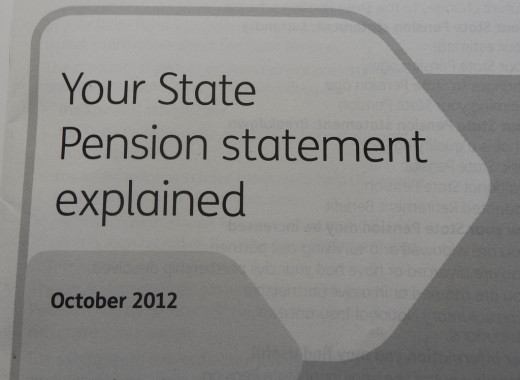The basics of pensions - how a pension plan works

We all need income to live off when we are too old an frail to work. And many of us would prefer to retire before we are old and frail - to enjoy ourselves after a lifetime's hard slog.
But can you afford to retire? To answer that you have to understand your pension provision and where your pension will come from.
What is a pension?
A pension is an income for you to live on in old age, once you have given up work.
Sometimes people refer to any of their savings for their retirement as their pension. But here I will be talking specifically about pensions that pay a regular income for the rest of your life, once you retire.

Where do I get a pension from?
There are three places you can get your pension from:
1. The State.
In many countries the state provides some sort of pension to it's citizens. This may be based on past contributions or simply on citizenship or residence. Typically it is only enough to provide a modest lifestyle in retirement (if that). Sometimes they are based on how much you have paid in social security contributions. Others are one flat rate.
2. Your employer
Many employers provide pension schemes for their staff. This can aid staff retention and loyalty and in many countries there are tax and other incentives provided by Government for such schemes. These pension schemes are sometimes called occupational or company pension schemes.
3. You
Most countries provide some support to people who save for their own retirement. Often insurance companies or other providers can offer you pension products - both to save into for your retirement (while you are still working), and to provide an income once you have retired.
Thinking about buying an annuity?
In some kinds of pension plan you may have the choice (or may even be required) to buy an annuity from an insurance company. This is a guaranteed income for the rest of your life (and may also provide for partner after you have passed away). For more information about annuities take a look at this article:
How much pension income will I get?
That will depend on a lot of things: the type of plan you have, how much you put in, how much your employer puts in, and maybe how your investments do.
There are two main types of pension plan, defined contributions plans and defined benefit plans.
1. Defined contribution plans
With a defined contribution plan the amount that you (and your employer if they contribute) put into the plan is known in advance.
But you don't know how well your investments will do, so there is always a chance you will end up with a smaller pot than you hoped (and also a chance you will end up with more).
The income you get from your pension will depend on whether you buy an annuity from an insurance company or just drawdown money from your pot. Either way you take risks (either that your pot will run out or that annuities are expensive when you need to buy one). Find out more about whether an annuity can be a good deal in this article.
2. Defined benefit plans
These plans (such as final salary or career average plans) tell you how much you will get based on a formula. Typically they are based on your salary (final salary or average salary). This means that you know what you will get compared to your pay. It also means there is less risk from investments. However these plans have to be backed by your employer and nowadays not so many companies want to take on the risk of running such a plan. If you are in such a plan, think carefully before leaving it as you may not get the chance to go into that type of plan again in the future.
It's impossible to say that defined contribution or defined benefit are better or worse than each other. They are very different from each other. Each will suit some people better and not others.
For all pension plans there is always a danger than the prices of the things you buy go up faster than your pension income, so that your quality of life goes down. A pension plan that increases payments using some sort of inflation index can help to protect you against that but it can't get rid of the risk completely (as it's not based on your particular needs).
Learn more about investments
If you have a defined contribution pension or saving scheme like a Personal Pension, IRA or 401(k) it is a good idea to understand something about investments and asset classes. And what asset classes are.
Or take a look at these articles explaining some of the pros and cons of investing in
The big difference between defined benefits and defined contribution
In a defined benefit pension scheme then who ever provides the scheme meets all the risks from investing the money in it. So if investments do badly then they will have to top up the fund with extra money.
In a defined contribution pension scheme you have to take the investment risk yourself. So if investments do well then you get a bigger pension. But if they do badly you will get a lower income in retirement - if you can afford to retire at all.
A lot of people who expected to be able to retire have had to make other plans because of the financial crisis which has reduced the amount in their pension pots and made buying a pension income more expensive at the same time.
These things can be complicated and there is no way to guarantee that you will always "win" from any investment decision so it's worth taking specialist advice if you can. But in order to make the most of that advice try to learn something yourself about investments and how they work.
The other option for pension provision
Pensions are becoming more expensive. This is for lots of reasons - people living longer, investments providing lower income than before. This means that some people are starting to talk about the "fourth option" of pension provision... working for longer.
That sounds bad - and it will be difficult for lots of people - but it doesn't have to be a disaster.
Increasingly companies are encouraging flexible retirement where staff can work less and less rather than walking out the door with a gold watch at age 60 or 65. That way companies benefit from their staff's experience and you can ease yourself into retirement at a pace that suits you.
Also many pensioners are starting their own businesses when they retire. Perhaps as consultants in their specialism, or making money from a hobby they have developed over the years.
Working longer may not sound like an attractive option but we need to face the reality that our retirement plans may not turn out like we hoped. And this is one certain way of improving your pension - even if it does take hard work.
So what should I do?
Your pension will make a huge difference to your life in retirement. It can be the difference between enjoying your final years or only enduring them.
Make a plan now. Find out what pension savings you might already have through work. Get advice and work out how much you want to live on when you retire. Then make a plan to get get those savings.
The younger you are the easier it is to save for the retirement you want. But it is never too late. And the sooner the better. Think about the retirement you want. Then plan for the retirement you want and you will be most of the way to making it happen.








